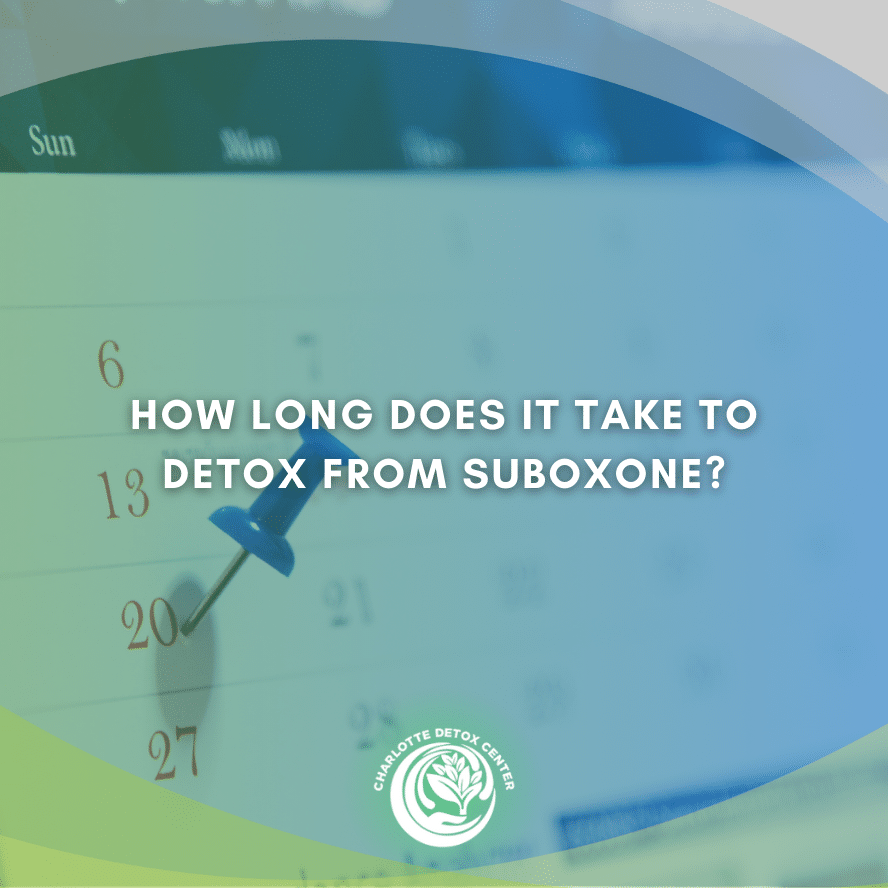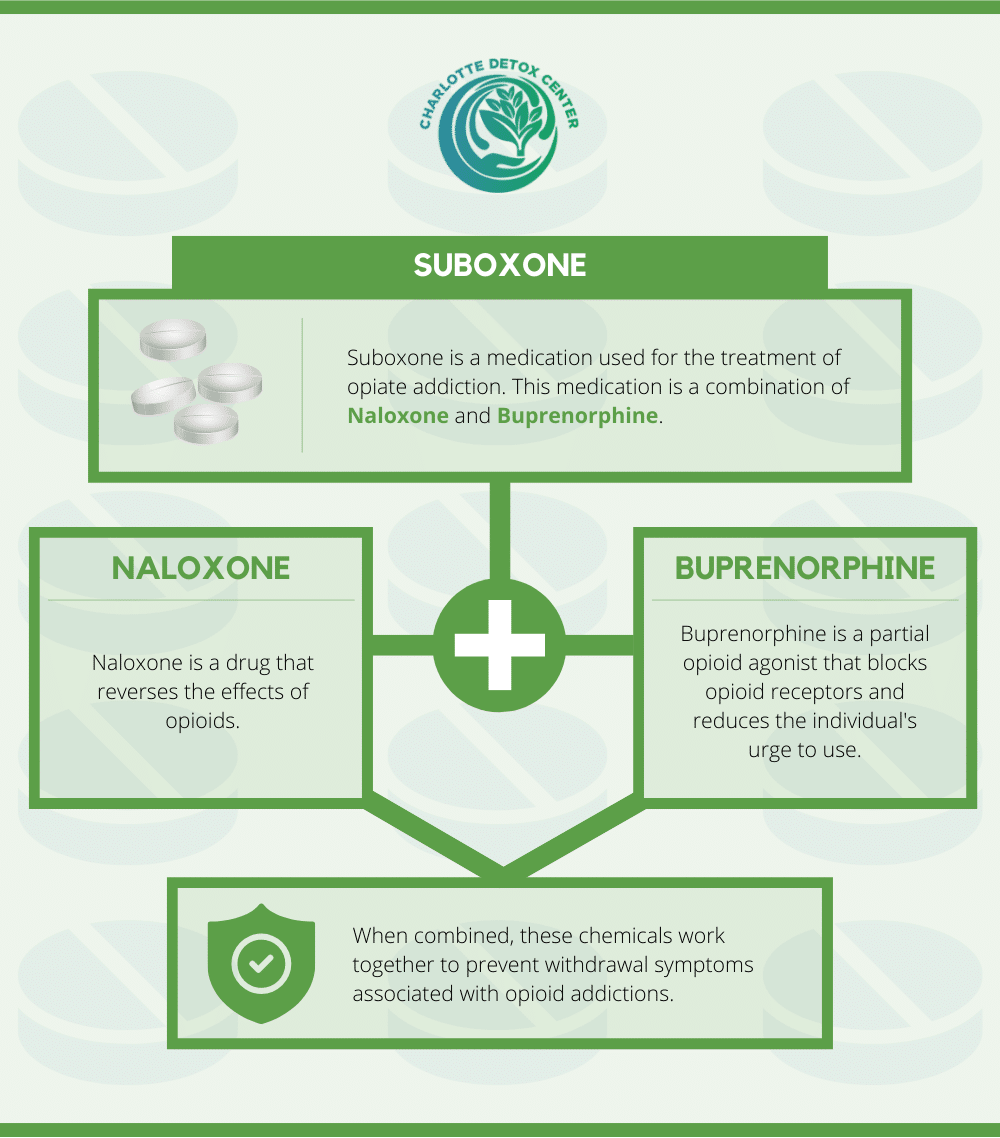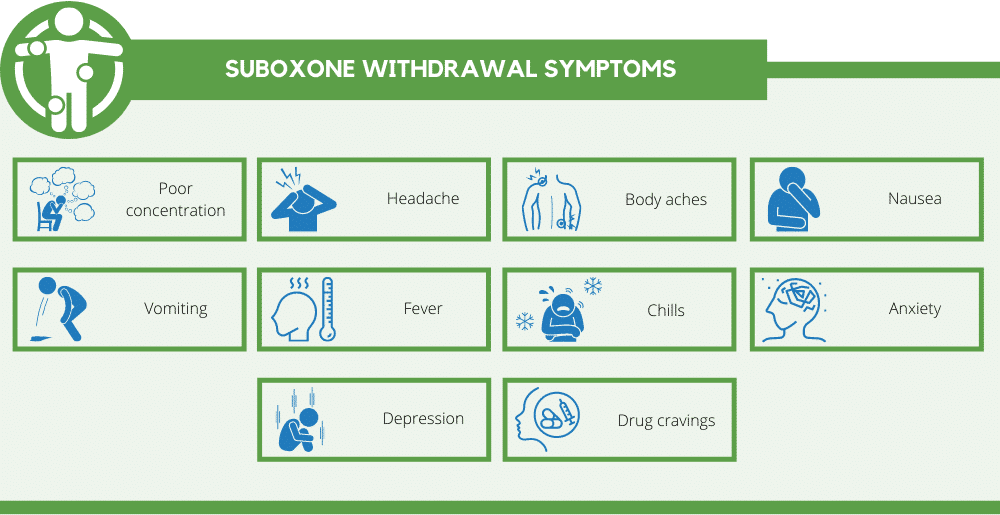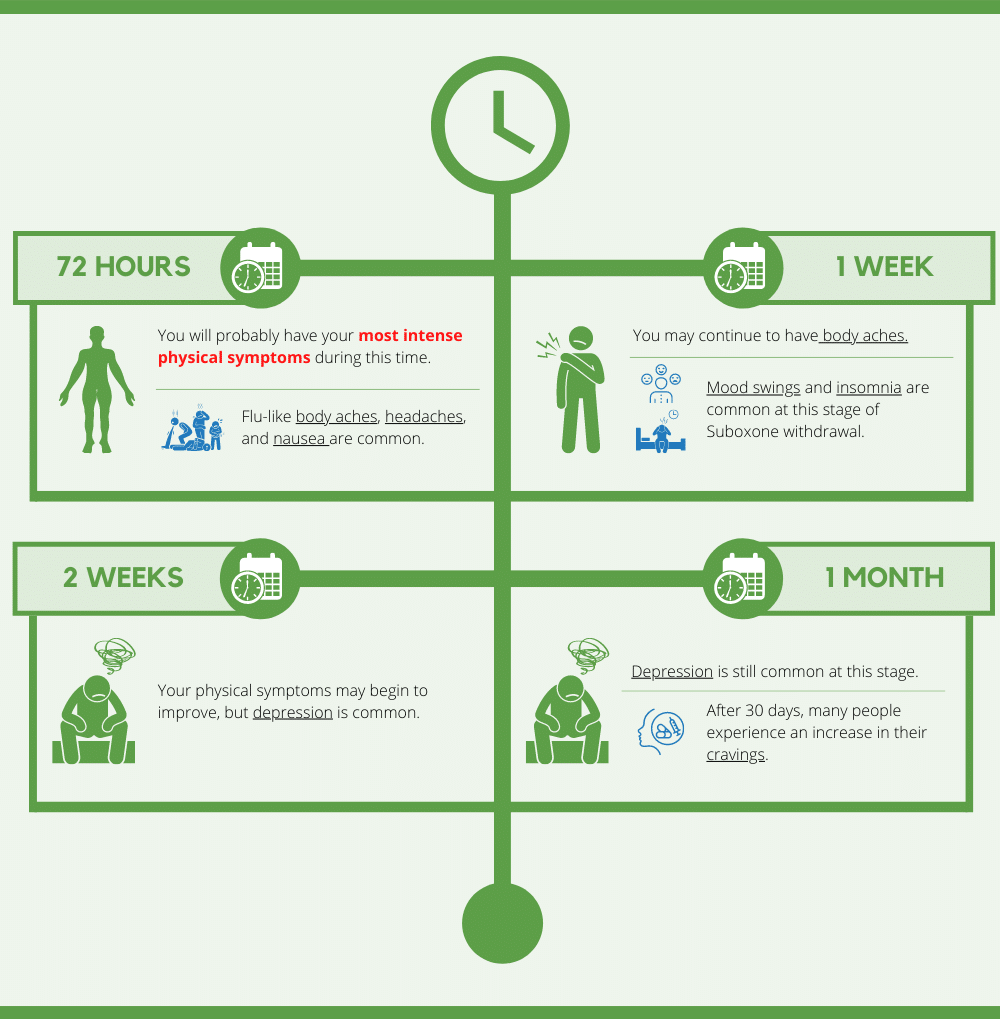How Long Does It Take to Detox From Suboxone?

Medically Verified: 2/1/24
Medical Reviewer
Chief Editor

All of the information on this page has been reviewed and verified by a certified addiction professional.
Addiction affects millions of Americans and impacts every aspect of people’s lives. Addiction can wreak havoc on someone’s physical health, have long-lasting effects on their mental health, and can damage their financial and social health. Many people struggle with opioid dependence. Opioid pain relievers are often prescribed to help people manage pain after surgery or to treat chronic pain. A significant number of people who take them, even as prescribed, become physically dependent on them, and addiction can happen quickly. Many people who become addicted to opioids require treatment to overcome the addiction.
During opioid addiction treatment, certain drugs are prescribed to help people manage the symptoms of the addiction and withdrawal. Suboxone is a drug that is often used during opioid addiction treatment. It contains a combination of two drugs, buprenorphine and naloxone. When used as prescribed, it can help people stop using opioids without the uncomfortable or dangerous symptoms of withdrawal.
Using Suboxone can result in physical dependence on it, and withdrawal from it must be carefully managed. Some of the symptoms can be similar to those that occur during opioid withdrawal, but they are generally not as severe. How long it takes to detox from Suboxone varies from one person to the next, but Suboxone withdrawal is generally not as intense as opioid withdrawal. Still, if you are attempting to reduce or stop using Suboxone, you must understand the risks and only do so under medical supervision.

What is it Like to Detox From Suboxone?
It can be emotionally and physically difficult to go through withdrawal from Suboxone. Even though withdrawal is not as severe as true opioid withdrawal, the symptoms can be excruciating or debilitating. These symptoms can include:

- Poor concentration
- Headache
- Body or muscle aches
- Nausea and vomiting
- Fever
- Chills
- Anxiety
- Depression
- Intense cravings
The severity of your withdrawal symptoms depends in part on the length and severity of your Suboxone dependence. Someone who has been taking Suboxone for a short time may experience comparatively mild symptoms during withdrawal, while someone who has taken Suboxone for a great length of time may have debilitating symptoms. No matter the length of time you have been using Suboxone, it is important to get medical advice and supervision before reducing your dosage or stopping completely.
A Basic Suboxone Withdrawal Timeline

During the process of detox from Suboxone, people experience different symptoms that can fluctuate in intensity. How long it takes to detox from Suboxone also varies from one person to the next. The process of withdrawal tends to follow this approximate timeline.
At 72 hours: You will probably have your most intense physical symptoms during this time. Flu-like body aches, headaches, and nausea are common.
At one week: You may continue to have body aches. Mood swings and insomnia are common at this stage of Suboxone withdrawal.
At two weeks: Your physical symptoms may begin to improve, but depression is common.
At one month: Depression is still common at this stage. After 30 days, many people experience an increase in their cravings.
After a month without Suboxone, many people begin to struggle with the detox process and need continuous support to avoid a relapse. While detox from Suboxone may be less severe than opioid withdrawal, the symptoms and cravings can be very uncomfortable. It is essential to have knowledgeable medical and addiction support during this stage to remain committed to detox.
How to Detox From Suboxone Safely
It is important not to attempt to detox from Suboxone on your own. People who attempt to do so often find that their withdrawal symptoms and cravings are too difficult to manage on their own. Many people who try to stop on their own fail to have a complete detox.
To have a safe, comfortable, and complete detox from Suboxone, it is important to follow these guidelines:
Get medical supervision: a doctor can tell you how to safely stop using Suboxone after determining it is safe to do so and can prescribe medications to keep you as comfortable as possible during the process.
Taper slowly: your doctor will help you taper your dose of Suboxone slowly over weeks or months. This will help you stay as comfortable as possible during detox and be able to manage your withdrawal symptoms effectively.
Get support: in addition to medical supervision, you may want to join a support group or attend substance abuse support meetings. Being part of a community can help you keep your focus and commitment during the difficult phases of detox.
Self-care can be an important part of Suboxone detox. Take care of your physical and mental health by making sure you are getting adequate sleep, eating regular, nutritious meals, finding time for exercise and meditation each day, and staying hydrated. Doing so will also make the withdrawal process go by faster.
Get Help With Suboxone Detox and Treatment in Charlotte, North Carolina
If you or someone you love require addiction treatment, including support for Suboxone detox, please reach out to the staff at the Charlotte Detox Center. We offer a range of programs designed to empower people to overcome their addiction and learn how to live life without substances.
If you struggle with addiction, you do not have to manage it alone. The compassionate, comprehensive treatment you deserve is available. Call today to get started.
